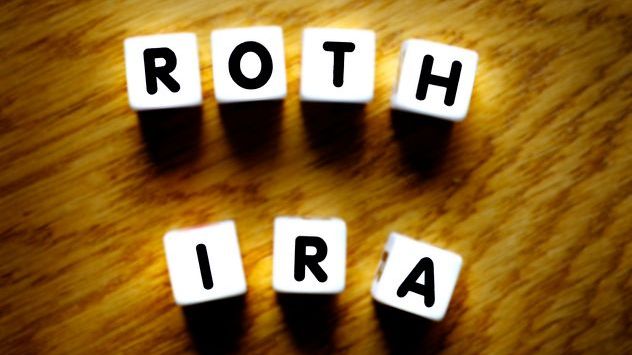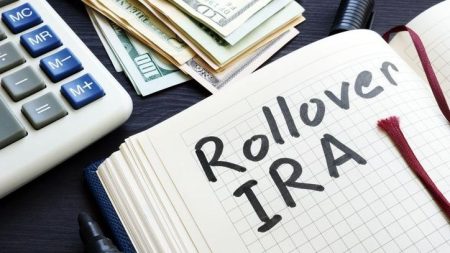If you want to roll over money from your 401(k) into a Roth IRA, there’s good news: any employer matching funds in a 401(k) can be converted along with your own contributions and investment earnings.
However, you’ll owe income taxes on all the converted funds, which can be a significant issue when converting large balances. And while you’ll also lose the ability to take loans from your account, the benefits of a rollover for you may outweigh these drawbacks. Speaking with a financial advisor can help you get better insight into your options and how a Roth conversion may affect your retirement plan.
About Employer Matches
Employer matching contributions made to your retirement savings account are essentially free money that can significantly increase the speed at which your nest egg grows. But not all employer-sponsored retirement plans offer matches, and those that do limit the amount of the match.
Typically, the employer will match all your contributions up to a set percentage of your salary. If the matching cap is set at 5%, for example, and you contribute 6% of your salary, the employer would match your contributions only up to an amount equal to 5% of your salary.
If the employer match is made on a pre-tax basis, you’ll pay income taxes on the money when you withdraw it down the line. If an employer offers a Roth 401(k), they may also offer matching Roth contributions.
Also keep in mind that you can’t leave funds in a 401(k) forever, as required minimum distribution (RMD) rules obligate you to start withdrawals at age 73 (age 75 for people who turn 74 after Dec. 31, 2032). Since RMDs can increase your tax liability and potentially push you into a higher tax bracket, planning for them is key – something a financial advisor can help with.
Roth Conversion Basics
Roth IRA accounts have a great deal of appeal. This is largely due to the fact that qualified withdrawals from Roth accounts can be made tax-free. As another potentially important benefit, Roth accounts are not subject to RMD rules.
Also, you can open a Roth IRA at many banks, brokerages and other institutions. This may allow you to have more investment options and pay lower fees than with your employer-sponsored 401(k) plan.
With all this in mind, many people elect to take advantage of a rule allowing them to convert 401(k) funds, including employer matching contributions, into a Roth IRA. Conversions will allow you to make tax-free withdrawals in retirement and also avoid RMDs.
There’s no limit on the amount of money you can convert from a 401(k) to a Roth IRA, but there are some costs and limitations to keep in mind. A financial advisor can help you determine whether a Roth conversion is appropriate for your financial situation.
Roth IRA Conversion Considerations

When converting funds from a 401(k) or other pre-tax retirement account into a Roth account, the money that’s converted is added to your ordinary income for the year in which you do the conversion. If you’re converting a large 401(k) balance, this can push you into a higher income tax bracket and add significantly to your current-year tax obligation.
Roth IRAs also offer less flexibility and more risk in some regards. While you generally can take borrow from your own 401(k), you can’t take out a loan from an IRA. Roth IRAs are also subject to special withdrawal rules. Roth IRA contributions and Roth conversions are subject to two separate five-year rules that dictate when investment earnings and/or converted balances can be withdrawn free of taxes and/or penalties.
Many people roll over their 401(k) when leaving their employer. It’s possible to leave funds in the plan at your former place of employment, but it may make more sense to consolidate your retirement accounts into a single IRA. You can convert a 401(k) from a former employer to a regular IRA or a Roth IRA, using the same procedure you would follow if you were staying on the job. And if you need help managing your retirement accounts or selecting investments appropriate for your timeline, consider working with a financial advisor.
Bottom Line

You can convert employer matches made to your 401(k) account to a Roth IRA, just as you can convert your own contributions and any investment earnings. You’ll lose the ability to borrow from your retirement account, since IRAs do not have loan options. However, you won’t have to take RMDs and can make qualified withdrawals tax-free, provided you satisfy the five-year rules.
Rollover Tips
- If you’re considering a Roth conversion, it’s important to understand your potential tax liability. After all, you’ll owe income taxes on the money that you convert. You can estimate your federal, state and local income tax bill using SmartAsset’s income tax calculator.
- Converting 401(k) funds into a Roth IRA is a complicated move with a lot of considerations to take into account. A financial advisor can help you sort through these potential issues. Finding a financial advisor doesn’t have to be hard. SmartAsset’s free tool matches you with up to three vetted financial advisors who serve your area, and you can have a free introductory call with your advisor matches to decide which one you feel is right for you. If you’re ready to find an advisor who can help you achieve your financial goals, get started now.
Photo credit: ©iStock.com/Luke Chan, ©iStock.com/eric1513, ©iStock.com/Drazen_
Read the full article here
















